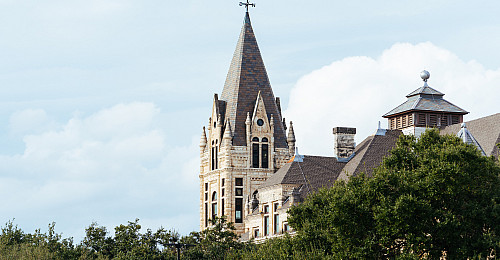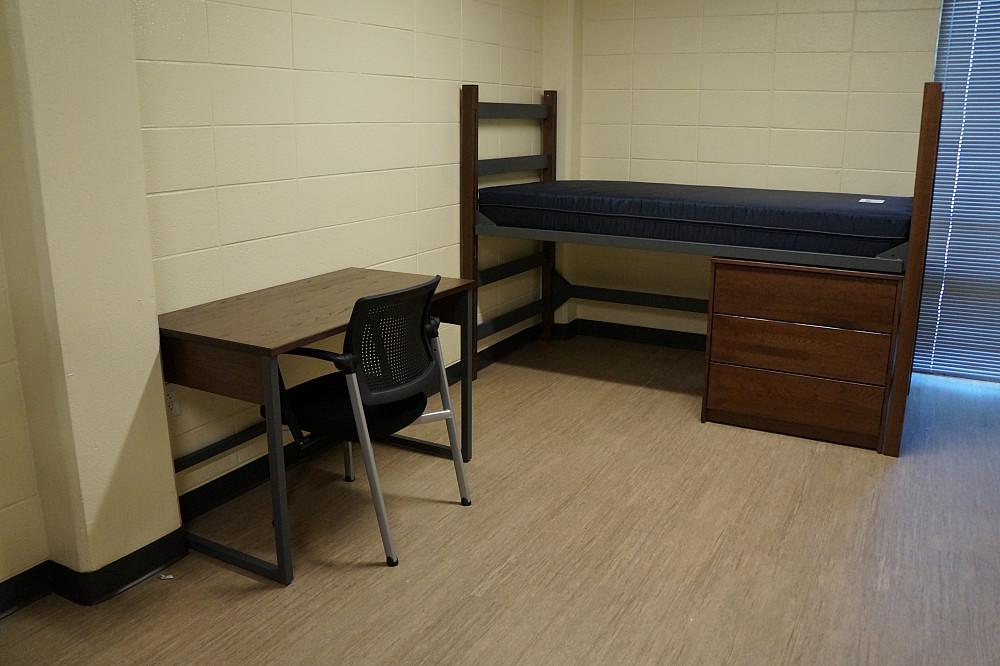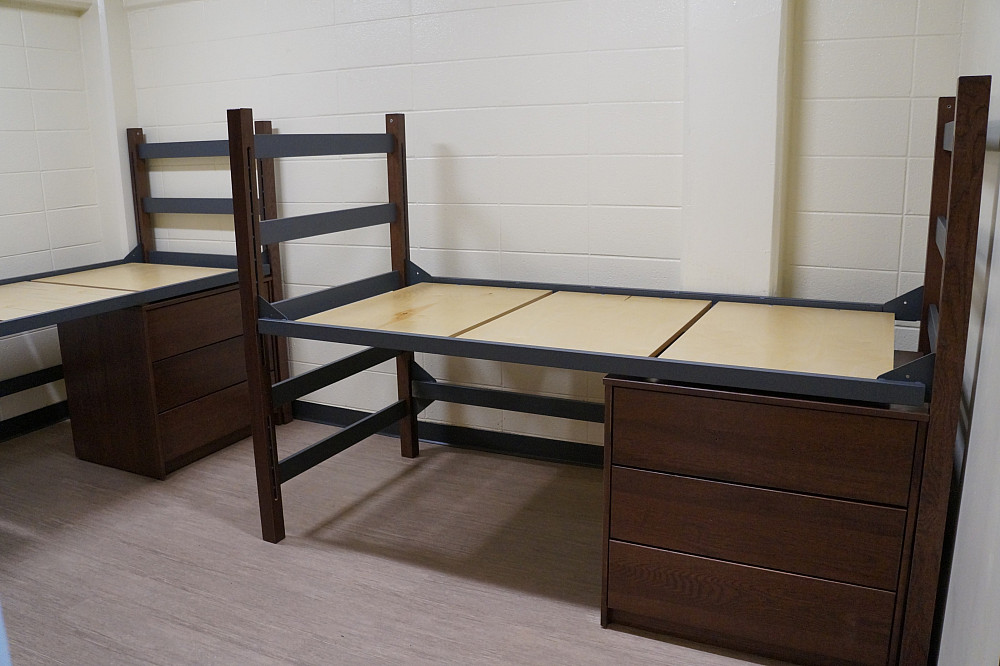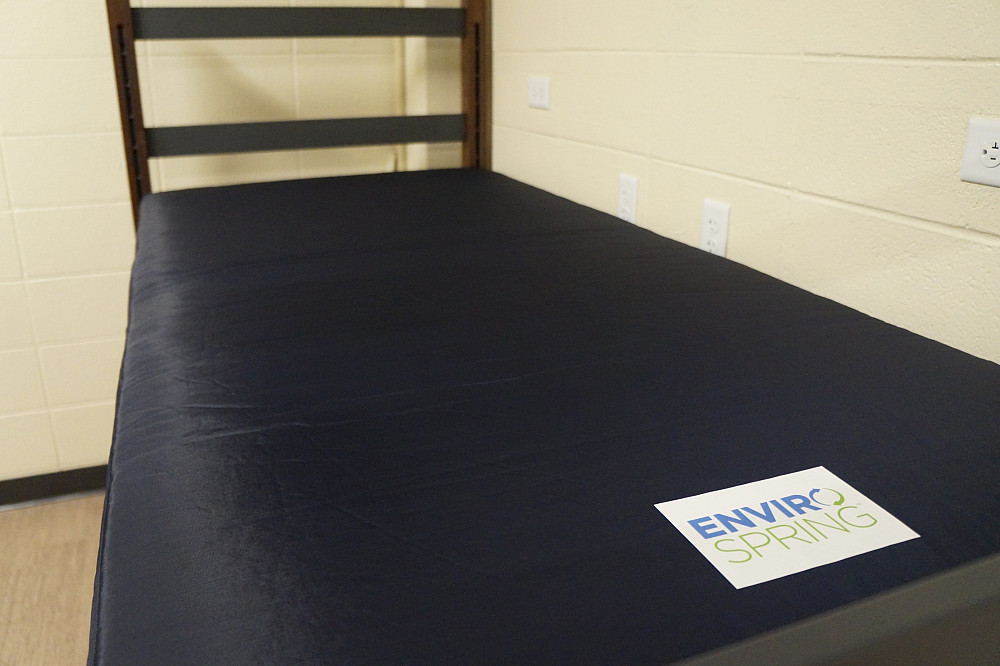News
Sustainable Furniture Comes to Southwestern
August 06, 2020
August 06, 2020
Open gallery

During the last week of July, rooms in Herman Brown and Moody–Shearn—two coed residence halls for sophomores—were outfitted with eco-friendly furniture. The new furnishings are the latest result of Southwestern’s continued commitment to sustainability; the university hopes to transition all its residence halls to sustainably sourced furniture within the next five years.
“Last year, we identified a need for a campus-wide residential-hall furniture standard. When evaluating potential manufacturers, we wanted furniture that was affordable, accessible, aesthetically pleasing, durable, and optimized space efficiently. We also looked for manufacturers that make their products domestically with eco-preferred materials and have a take-back program,” says Sustainability Coordinator Veronica Johnson. “Ultimately, we chose suppliers who checked all the boxes and are leading the way in sustainability.”
The bed frames, desks, and dressers in Brown and Moody–Shearn were all crafted from sustainably harvested wood in North America. DCI, the manufacturer, works with state foresters to cut down only mature trees and harvests lumber within 100 miles of its facility, reducing the company’s carbon footprint while supporting local jobs. DCI also leaves behind materials so that wildlife can create habitats in harvesting areas and adheres to a zero-waste policy while treating and refining lumber.
The new green furniture, including the desk chairs, has the added benefit of emitting zero volatile organic compounds (VOCs), toxic chemicals that are often released as gases from consumer products such as building materials, adhesives, and paints. These compounds have been known to affect air quality; irritate the eyes, nose, or throat; and even cause cancer, so the change in furnishings means a safer, healthier environment for students. DCI’s buy-back program also ensures that none of the new furniture will ever be sent to a landfill.
Southwestern also partnered with Lippert Components to equip the rooms in Brown and Moody–Shearn with EnviroSpring Mattresses, which are made from 100% recyclable materials and are also manufactured using zero-waste practices. Like DCI, Lippert provides a zero-landfill program, meaning once the mattresses are ready to be replaced, the company will pick them up from the university, break them down at their facility, and recycle them into new mattresses.
“Both of these companies were chosen to help us reach our zero-waste goals,” Johnson explains. “To ensure this whole procurement process didn’t produce any waste, we replaced the standard twin beds and mattresses in Clark with all the extra-large twin beds and mattresses that were in Herman Brown. We also replaced all the furniture in Ruter with the beds, desks, chairs, dressers, and mattresses that were in Moody–Shern. The standard twin beds that were in Clark and nearly all the furniture that was in Ruter were donated to Habitat for Humanity, Salvation Army, and Works of Our Hands, providing families across central Texas with low-to-no-cost furniture.”




















